In Immagini Animation Studios’ Chef Jack: The Adventurous Cook (originally Chef Jack: O Cozinheiro Aventureiro in Portuguese), the eponymous Jack travels the world in search of the best ingredients for his original recipes. His current quest is to find the ingredients necessary to win a cooking competition that he previously lost.
Chef Jack: The Adventurous Cook is a travel adventure film with a competition story arc. It pulls from influences as varied as Raiders of the Lost Ark and The Emperor’s New Groove while maintaining a distinctly Brazilian sensibility. We had the opportunity to discuss the film with executive producers Luiz Fernando de Alencar and Giordano Becheleni, to learn more about their thoughts on Chef Jack and producing a 2D animated feature film in Brazil.
How would you describe your role in this project and what did a typical day in production look like for you?
Giordano: We set [distinct] parts of our production pipeline. First of all, we have the preparation phase. We sit with our directors – directors of the movie, directors of art, animation directors. And then after that, when we finally structure our script, we pass through our storyboards, using Storyboard Pro. Then we pass to the production phase.
We had almost 120 people directly on the movie. It was great because, here in Brazil, animation productions are not common. We see a lot of Dreamworks and Disney, all that stuff. It was a challenge for us, but we believe in our potential.
And of course, once again, using this software makes it easier for us, because we optimize our time and our budget. The public generally knows about Disney and Dreamworks, [which informs] their opinion about the quality of the film. So we did our best. It was a great time for us.
After the production, we pass to post-production, where we do our voice, soundtrack and foley. In pre-production, our Black characters were [portrayed] by Black actors and actresses. We know that we have to open this window of equity.
Chef Jack is a film with international distribution, and you got the chance to use Brazilian talent and make it in Portuguese. What was that experience like?
Giordano: Well, our production company is in a state named Minas Gerais. Chef Jack was the first animated movie in our state’s history. It was very important to open this creative and economic window and to inspire all of the artists in animation.
And we tried to do our best in Portuguese. Now, in Brazil, we have over 200 million people, so it’s very significant for us. Today, the film is in the top ten films of our country. We’re in the sixth position behind Avatar: The Way of Water and Puss in Boots: The Last Wish.
We are currently in nineteen Latin American countries now. We had the opportunity to be on HBO and Max. And we have been in the top ten for eight weeks on HBO. And Sony has just signed a contract with China, so we’re going to China, Kazakhstan, and the Asian market.
This is very important to us because we put a lot of effort into this film, with not much money.
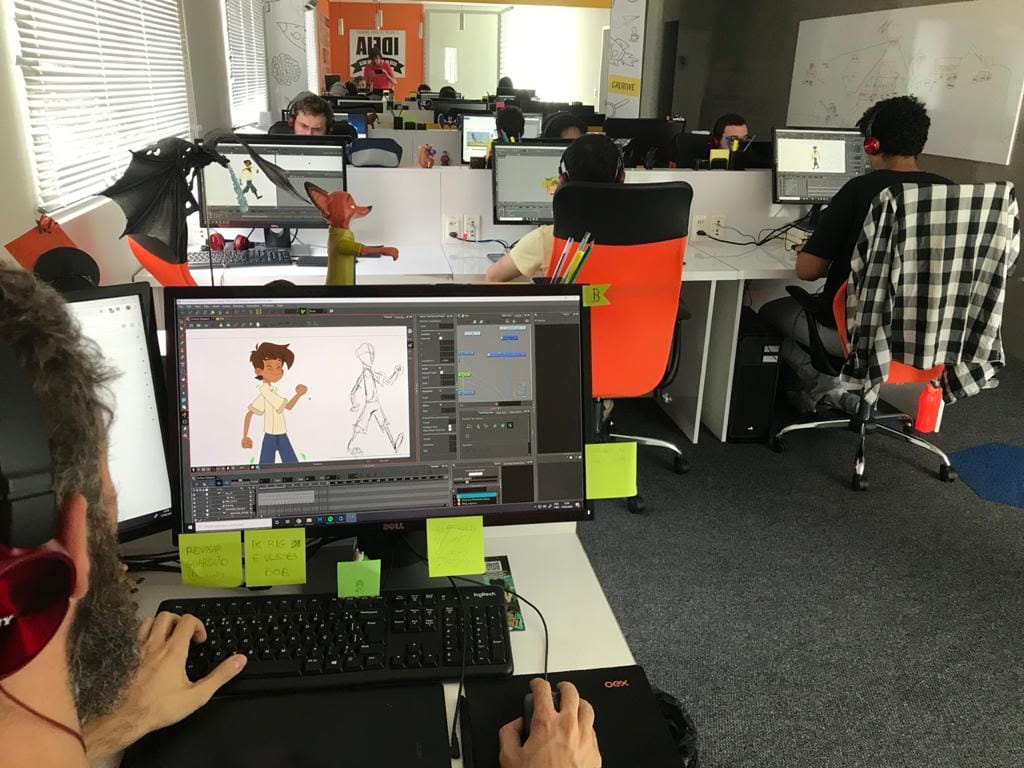
How was the production process using Storyboard Pro and Harmony?
Giordano: We started production in 2016, but in fact our director Artur [Costa] developed the idea for Chef Jack when he was in college. After that, when I met Luiz Fernando in 2016, we decided that this original idea was so strong, and has never been told before.
Luiz: It was a unique experience. We organized ourselves to make our first original film. We established an assertive workflow and schedule, and used software such as Toon Boom for our animation and storyboards and other tools to develop the film with the quality we wanted.
Firstly, we created a script that had a lot of adventure. We wanted to give our audience a very dynamic experience. We decided to use live action-style camera shots and movements to give the scene more movement.
Another front was research into character styles, backgrounds, lighting and finishing. We spent a few months working closely with the art and animation team to find the right style. Once defined, it was the turn of the board and animatic to put [it all together] until reaching a satisfactory result. As soon as the animatic was approved we went to record original voices with Brazilian artists.
The next step was to define the entire layout and production of all scenarios and props. We used most of the 2D illustrations in the planning, but we also used 3D to give more depth to some scenes.
At the same time, all character and rigging designs were made. As soon as the planning stage progressed, we entered the animation, where the team of animators put into practice the animation styles defined at the beginning by the director and animation director.
Then it was the production team’s turn, which took care of the final colouring, effects, lighting, and shadows, among others. Finally, the soundtrack, foley and sound effects were inserted.
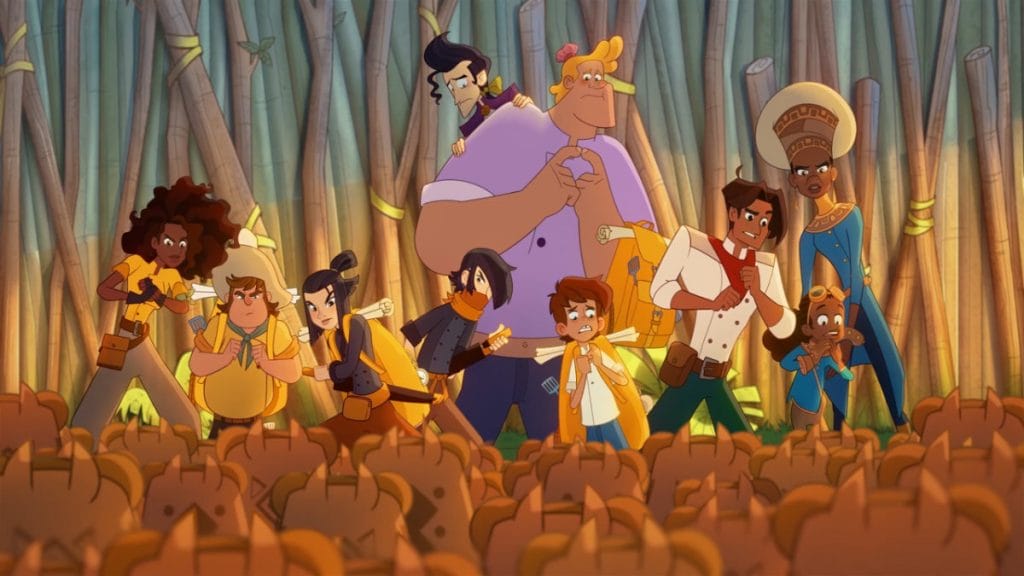
What did the planning stage of this project look like?
Luiz: We have a great team that embraced the project, dedicating themselves to the maximum to make it a film for the whole family. We are aware of all the challenges of being a long production and from the planning stage we try to do the best and within our budget.
So we carried out a lot of research to arrive at the ideal concept we wanted, in terms of character style, scenery, backgrounds, lighting and finishing. We defined the choices together with producers, screenwriters, directors, the art director and the director of animation and post-production.
The film was a collective choice and we believe we arrived at a really cool result.
What techniques and programs did you use to make this film?
Luiz: We used cut out animation in almost the entire film, and in some very specific scenes we used full animation. We use Toon Boom software such as Storyboard Pro for board and animatic and Harmony for animation. In the scenery art, we use photoshop and in post we use After Effects.
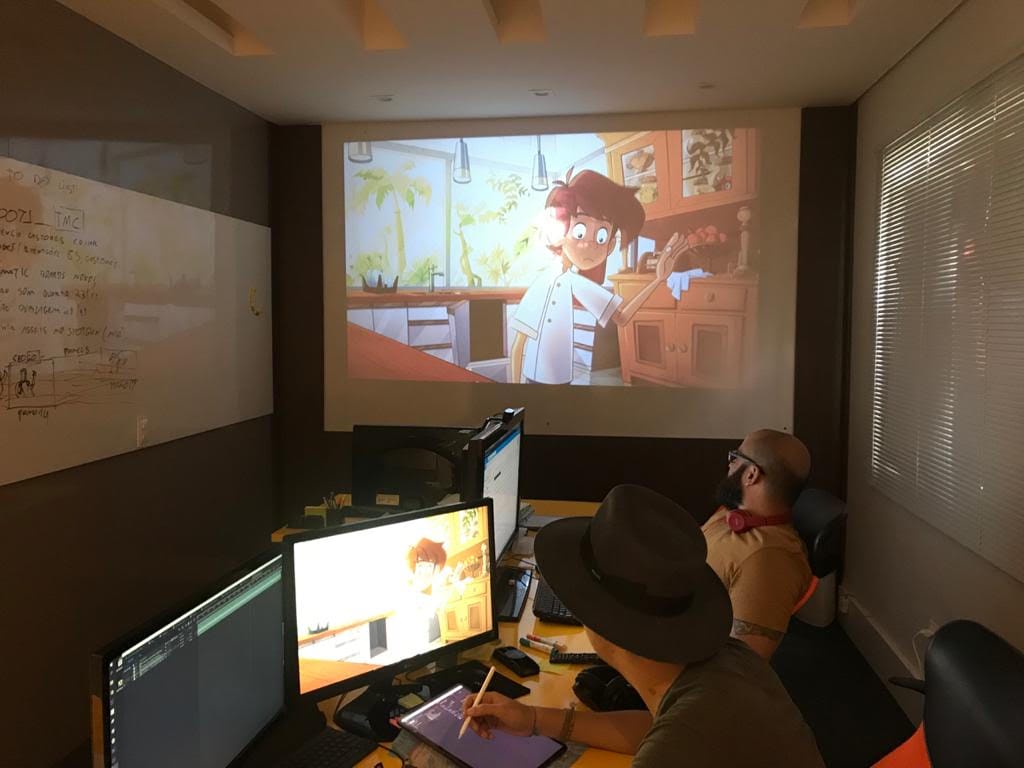
Chef Jack clearly takes a lot of visual inspiration from older adventure films – Indiana Jones comes to mind. What were the inspirations behind Chef Jack?
Luiz: We were really inspired by Indiana Jones for his heroic, charming and comical personality.
In terms of animation style, we were inspired by the animated film, The Emperor’s New Groove. But we also brought references from the culinary world, such as reality cooking shows and programs from chefs like Gordon Ramsay.
The lighting and shadows really stand out in this movie. What are the challenges and benefits to incorporating dynamic lighting?
Luiz: The main challenge is to maintain a standard throughout the film considering the variety of scenes, textures, characters and objects.
As the characters’ actions tend to be more exaggerated, the shadows and lighting must be well aligned and worked on so that they also highlight the colours and help the scene become easily readable, especially for children.
But in the end it is always rewarding and magical to see the result.
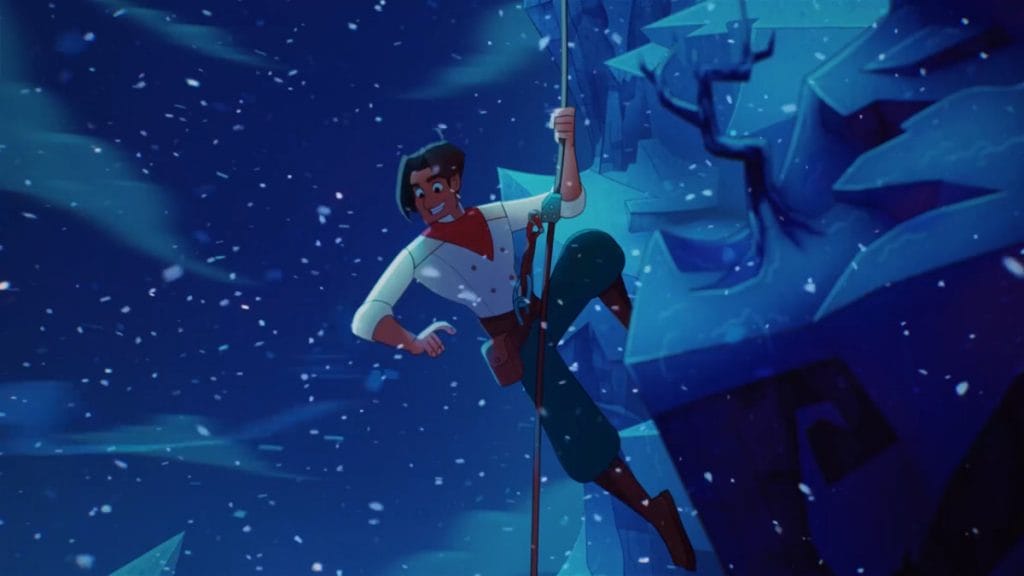
What were the most challenging or most interesting aspects of production?
Luiz: The most interesting thing is seeing the film being made and becoming part of our lives. We fell in love with the characters and we were always excited to see the next finished scenes.
The most challenging thing was producing part of the film during the Covid-19 pandemic. The meetings were via video conference. Our team worked remotely which was something new. But with organization and everyone’s commitment, we were able to maintain our schedule and quality.
Can you talk about the importance of Portuguese-language productions, and particularly Brazilian productions, on the world stage?
Luiz: Angola, Brazil, Cape Verde, Guinea-Bissau, Equatorial Guinea, Mozambique, Portugal, Timor-Leste and São Tomé and Príncipe are countries that have Portuguese as their official language. But Chef Jack was always thought of as a film to entertain all viewers around the world, since we have subtitles and dubbing that allow this reach.
We brought elements of our culture in the narrative, soundtrack, and, of course, in the creative lines in all phases of production. We were embraced by the public in the more than 25 countries where the film was shown, whether on streaming, VOD or in cinemas.
Audiovisual has no borders. Work, love and dedication to the project will always make a difference.
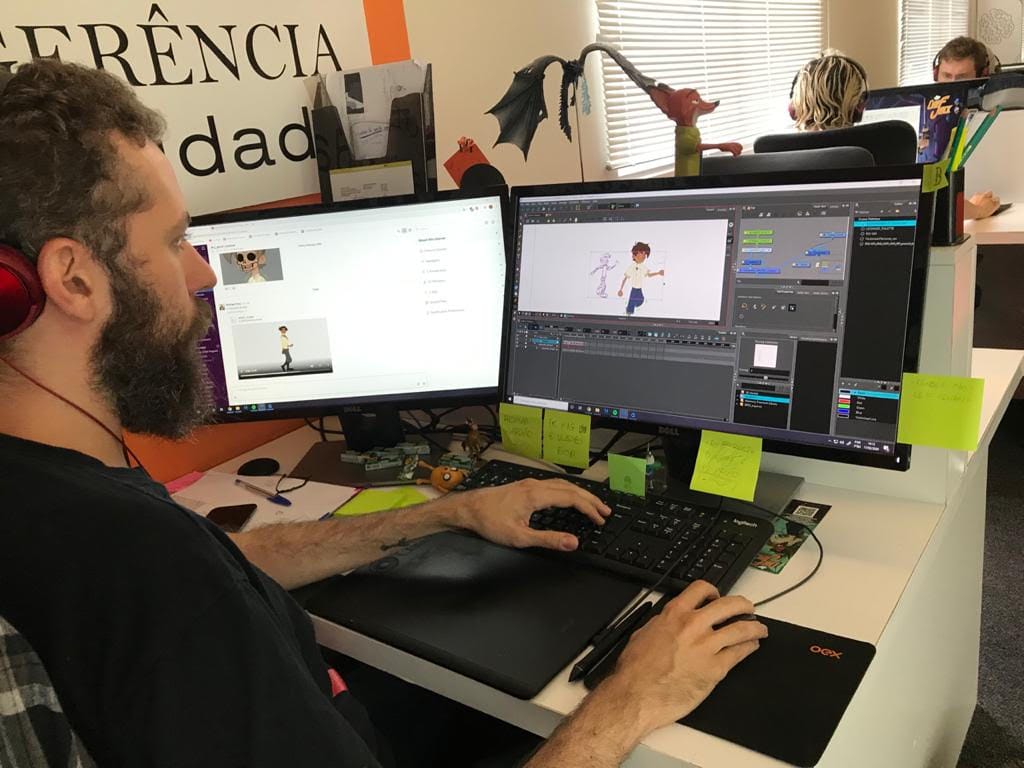
How would you describe the reaction to the film so far?
Luiz: In Brazil, we were among the highest grossing films in 2023. We received awards at several Festivals in Brazil and around the world. And we are waiting for the results of the final of the films that will be in the Ibero-American Film Awards.
Worldwide distribution advances every day. Therefore, we would like to thank the public, specialized media and Toon Boom for their support for the partnership. This year, 2024, we begin production on Chef Jack 2 in another new adventure full of mysteries and surprises.
Giordano: We plan to bring Chef Jack to Europe and more countries in Asia. In Chef Jack, we had the opportunity to introduce the characters. And then, with Chef Jack 2, there will be more adventure, more emotions, more suspense.
Our dream is going to the Oscars – not to win, but just to inspire others around the world. It was such a pleasure to make this film. It’s magical for us.
- The trailer for Chef Jack is available on YouTube. For more information about Immagini Animation Studios, check out their website or reach out on Instagram.
- Interested in producing a 2D animated feature film? Studios can download a 21 day trial for Harmony Premium.
The post Brazil’s Immagini Animation Studios on preparing Chef Jack: The Adventurous Cook appeared first on Toon Boom Animation.
Courtesy: https://www.toonboom.com/brazils-immagini-animation-studios-on-preparing-chef-jack-the-adventurous-cook






